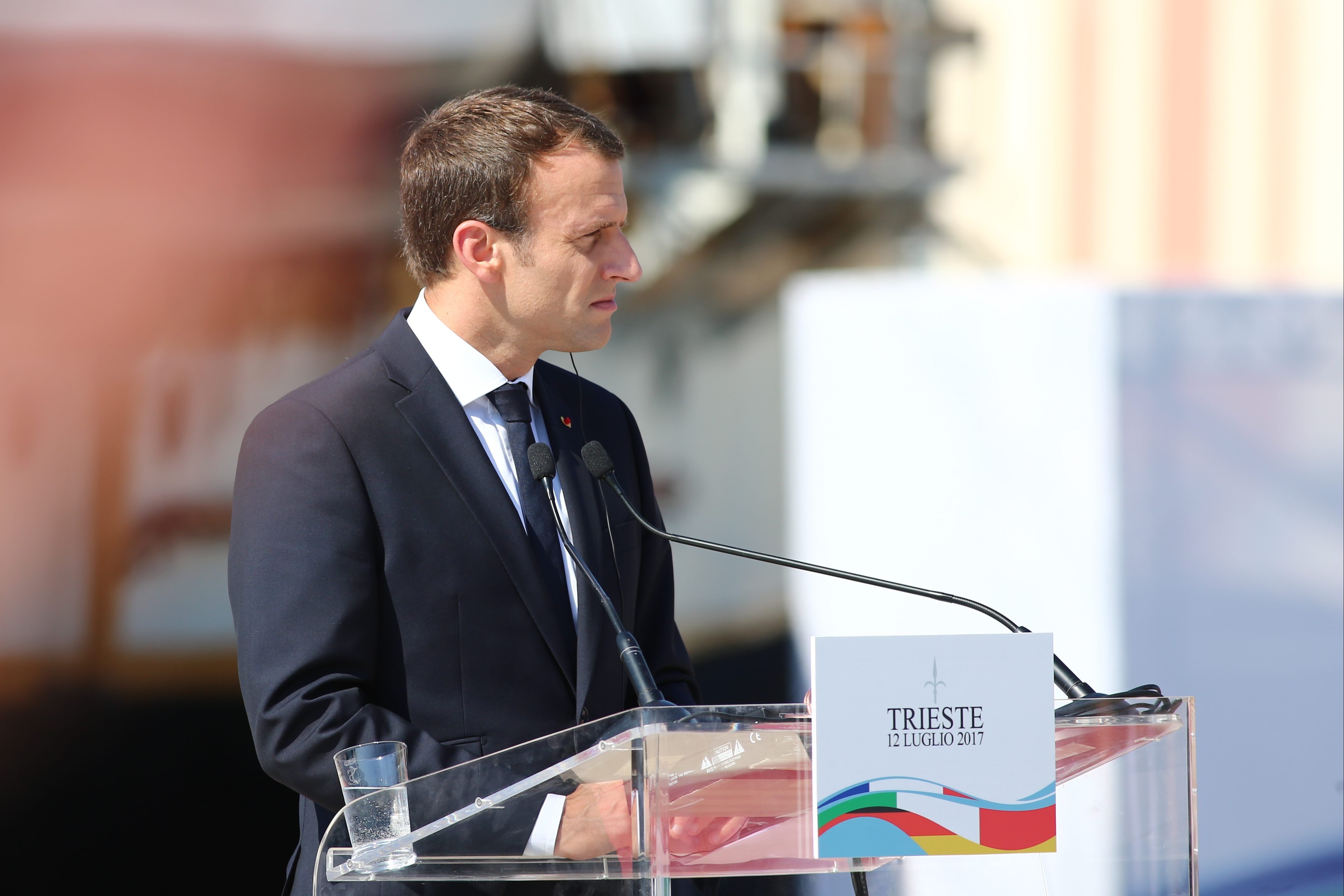
The main reason for France’s veto over the start of EU accession talks with North Macedonia and Albania has been the reluctance of the French public to back further enlargement and French President Emmanuel Macron’s priority of deepening EU integration before the community expands. The reform of the accession process as proposed by France in midNovember does not represent a change in its policy opposing enlargement.
In October, France, supported by Denmark and the Netherlands, vetoed in the European Council a bid to open accession negotiations with North Macedonia and Albania. The veto came even though both countries have met all the conditions and the Commission and European Parliament presented positive recommendations on this matter to the Council of the EU.
France has repeatedly expressed its opposition at the EU forum regarding the start of accession negotiations between the two countries. This contrasts with the positive position of 25 other countries and surprised France’s European partners and EU institutions. Macron’s Council veto reflects France’s domestic political context and the priorities of the country’s European policy.
Internal Reasons
Macron’s veto came amid fears of a further loss of public support among the French because of their scepticism of enlargement. According to Ifop research in 2019, two-thirds of the French oppose EU enlargement, describing as too soon, and in a YouGov 2018 poll, the respondents declared that the EU should not accept new members. In this context, most of the respondents (60%) state that it is no longer possible to accept new immigrants because of integration problems and differences in values (Ifop, 2019). Albanians are the second-largest national group in asylum applications (in total, 9,683 applications, of which 8.4% were accepted), but the French are concerned that after enlargement, a new wave of immigration specifically from this country will appear.
Macron’s blocking of accession talks has helped to authenticate his new political strategy, based on the president's adherence to the opinion expressed by a majority of citizens. This strategy is crucial to rebuilding support for his government, weakened by the year-long “yellow vest” protests. After 2.5 years in power, Macron had lost 34 percentage points of public support (from 64% to 30%) and is, in this respect, on par with rival Marine Le Pen (who in the same period, has gone from 28% to just 27%).
Local elections scheduled for March 2020 will test Macron after losing earlier this year to Le Pen’s National Rally (NR). The first opinion polls indicate that Macron’s party, La République en Marche (LRM) will lose, as it is able to count on only about 8% of voters compared to about 40% of the combined total of the opposition candidates. In the campaign, Macron's camp will have to deal with socially sensitive topics that may harm LRM.
Another factor conditioning Macron’s veto is that Le Pen again will probably be his main rival in the 2022 presidential election. As with the European elections, Macron’s party wants to put the rivalry with the NR at the centre of its campaign. The veto on EU enlargement served to neutralise Le Pen’s growing popularity with the right-wing electorate. Her party clearly opposes enlargement, seeing it as one of the main reasons for the weakening of the European project. In turn, Republicans are less focused on the previous stages of enlargement and more opposed to the next, including all Balkan countries. The Socialists, who are in a serious leadership crisis and seeing historical declines in support, remain particularly divided on this issue. Only Raphaël Glucksmann’s younger wing of the party seems to favour accession talks, in particular, with Serbia.
Macron's European Policy Imperative
Macron’s veto is in line with his European policy of deepening integration, which is a reaction to Brexit. According to this policy, the functioning of the Union in its current shape should be improved first and then the admission of new members can be considered. Macron has been reluctant to expand the EU for three main reasons. First, he wants the Union to reform its accession procedures before starting negotiations with candidate countries. The French president questions, among others, the methodology for assessing prospective members’ internal situation (e.g., rule of law, level of corruption). That is why he asked the Commission to produce one more report on the state of reforms in both North Macedonia and Albania. In response to criticism of the veto, France proposed on 15 November reforms of the accession process in a five-page document (non-paper). The proposal, however, is not a change in the main direction of French policies, as it remains reluctant to expand the EU. The French proposals are more about postponing than reforming this process because they are associated with the possibility of reversing the negotiation process to previously closed talks or even freezing them as a result of a country’s failure to meet EU criteria.
Second, the French side views neither country as ready to start the negotiations to obtain EU membership status because, according to Macron, they remain far from EU standards for upholding the rule of law and fighting corruption. The president thus questioned the Commission’s recommendations regarding starting the negotiations because they had met the EU’s conditions—Albania introduced comprehensive reform of the judiciary and North Macedonia concluded an agreement with Greece and changed the name of the country.
Third, Macron does not want to allow for a further increase in the political significance of countries in Central and Southeastern Europe. From the beginning of his presidency, Macron has been criticizing as too hasty the enlargement that included countries in the region and emphasizes the differences between western and eastern EU members. In addition—important in terms of recent tensions in France’s relations with Germany—further enlargement of the EU to the countries of the region could strengthen Germany's position within the EU. This is due to the Berlin Process, initiated by Germany in 2014 to support EU enlargement to the Western Balkans and to implement economic and political interests important to this country. However, in the non-paper about the conference on the future of Europe, presented on 27 November, Germany and France jointly propose a broader public debate, including on the future of EU enlargement.
Conclusions and Perspectives
France’s objection to the EU’s unpopular enlargement to the Balkans is helping Macron increase his party’s electorate in the rivalry with the anti-immigrant NR. Similarly, one should read France’s proposals to reform the accession process as an aim to postpone further enlargement rather than streamline it.
Given the position of the French public on the matter, it is unlikely that Macron will change his position on EU enlargement. The result will be a coalition around Macron against further EU enlargement, starting with the Netherlands and Denmark. This could not only deprive the Union of one of its most important foreign policy tools but also deepen divisions between the Member States. In turn, this limits France’s ability to lead the EU and could lead to growing disputes between France and EU institutions and most EU countries that support enlargement.
France’s decision also does not align with Poland’s view, which treats enlargement as a priority because membership in the EU affects the prosperity, security, and democratisation of the countries of the region, which stabilises the entire Union. Hence, Poland, along with Germany, Italy, Austria, the Czech Republic, Slovakia, and Slovenia, is pushing for the return to EU accession talks with North Macedonia and Albania. In a letter dated 19 November, addressed to the EC president, the heads of diplomacy of these countries (except Germany) stated that the condition for reforming accession procedures will be the opening of accession negotiations with North Macedonia and Albania. France probably will compromise on the opening of negotiations but will block their progress, for example, by demanding that new conditions be considered.
France’s veto also increases the catalogue of divergences in Polish-French relations. Given the convergence of Poland’s and Germany's position on the further enlargement of the EU, France's veto will hinder the revival of cooperation within the Weimar Triangle.




